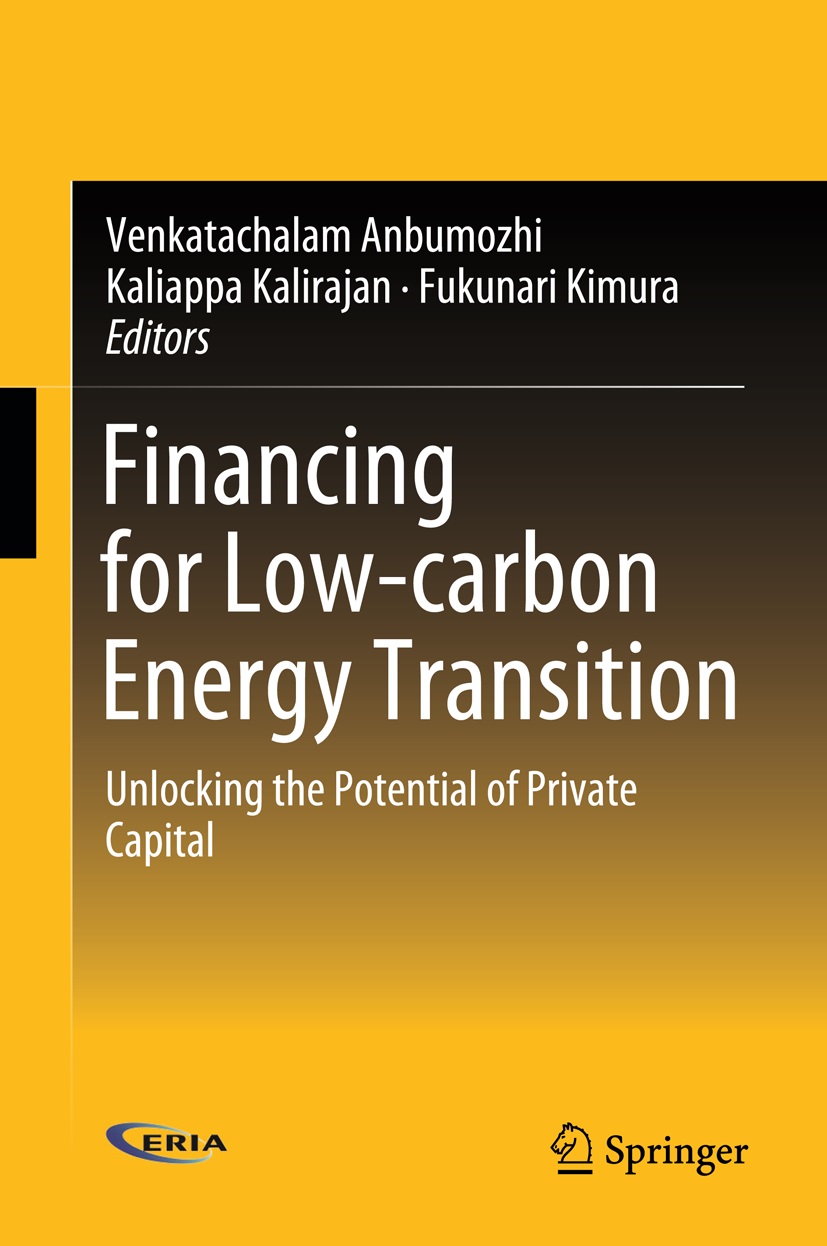Financing for Low-carbon Energy Transition: Unlocking the Potential of Private Capital

Print Article:
This book is the first comprehensive assessment of the state of low-carbon investments in Asia, analyzing the rationales, mandates and public–private financing activities. Based on the experiences of several regional initiatives wherein public financing is catalyzing private investments in low-carbon infrastructure, this book proposes a framework that can be used as a tool to identify factors that influence private investment decisions and policy instruments that can scale up private capital.
Placing the Asian economies onto a low-carbon development pathway requires an unprecedented shift in investments. This book addresses this situation by asking questions such as:
• What is the central role of private finance in achieving the Paris Agreement targets?
• What key policy levers and risk mitigation can governments use in an effort to unlock the potentials of private capital?
• How can regionally coordinated actions hold significant promise for scaling up private investments?
About the Book
Edited by Venkatachalam Anbumozhi, Kaliappa Kalirajan, Fukunari Kimura
438 pages
Table of Contents
- Unlocking the Potentials of Private Financing for Accelerated Low-Carbon Energy Transition: An Overview (Anbumozhi, Venkatachalam (et al.))
- Estimation of Currents Flows and Future Needs of Investment for Low-Carbon Transition in Major Economies of Asia Until 2030 (Treco, Kevin (et al.))
- Private Financing in Low-Carbon Energy Transition: Imbalances and Determinants (Kalirajan, Kaliappa (et al.))
- Mapping the Necessary Policy Instruments to Unlock the Potentials of Private Finance for a Modern Renewable Energy Sector (Wolff, Peter)
- Mapping the Necessary Policy Instruments to Unlock the Potentials of Private Finance for Carbon Capture and Storage Technologies (Ogihara, Akira)
- Mapping Policy Instruments to Unlock the Private Finance Potentials to Improve Industrial Energy Efficiency (Sreenivasulu, Deverapalli (et al.))
- Mapping the Necessary Policy Instruments to Unlock the Potentials of Private Sector Investments in Energy Efficiency for Transportation (Chotichanathawewong, Qwanruedee)
- Leverage the Financing Role of Banks for Low-Carbon Energy Transition (Kim, Jootae)
- Role of Capital Market to Accelerate the Transition to Low-Carbon Energy System (Tian, Huifang)
- Costs and Benefits of Market-Based Instruments in Accelerating Low-Carbon Energy Transition (Doshi, Tilak K.)
- Effective Private Financing Approaches and Equity Financial Instruments for Low-Carbon Energy Investment: ADB Experiences (Mo, Lingshui)
- Leveraging Private Finance Through Public Finance: Role of International Financial Institutions (Anbumozhi, Venkatachalam (et al.))
- Alternatives to Private Finance: Role of Fiscal Policy Reforms and Energy Taxation in Development of Renewable Energy Projects (Yoshino, Naoyuki (et al.))
- Prospects of Quality Infrastructure Program and Private Sector MRV for Accelerating the Transition Towards Low-Carbon Energy System (Hongo, Takashi)
- Prospects of Catalysing Regional Solutions and the Role of Low-Carbon Transition Fund (Anbumozhi, Venkatachalam (et al.))
More Information
Click Here to purchase the book. Hardback version available.




